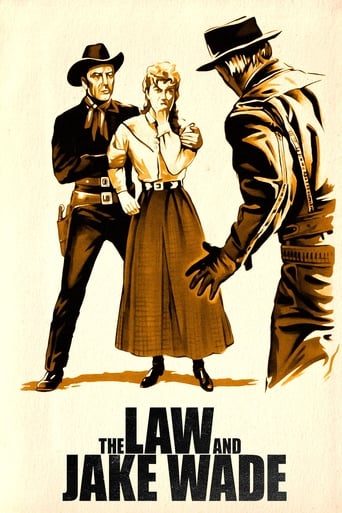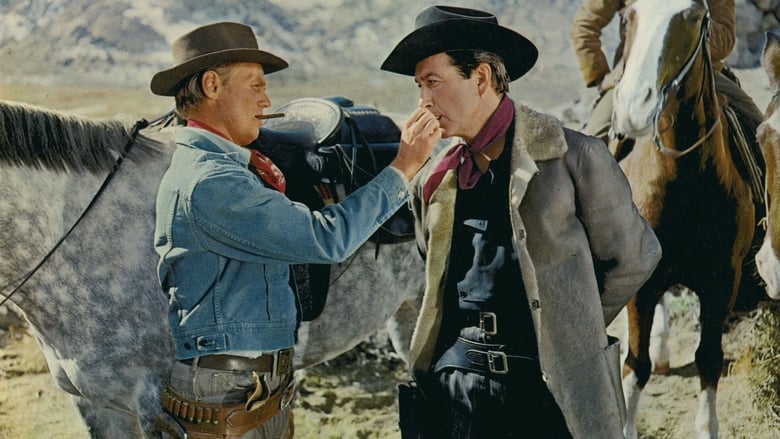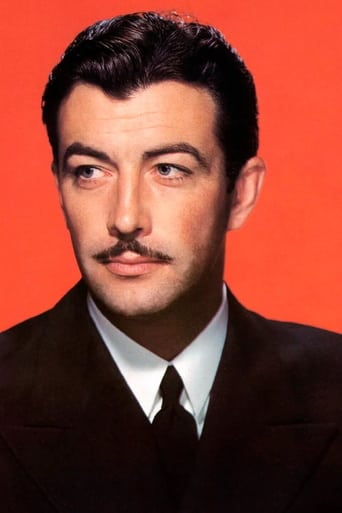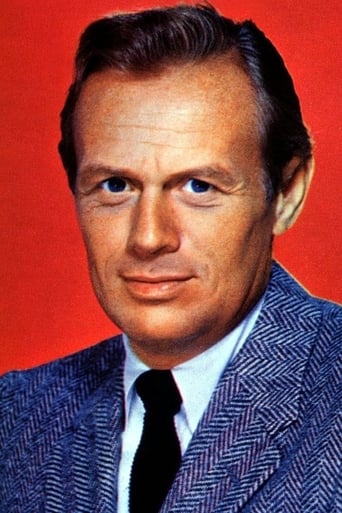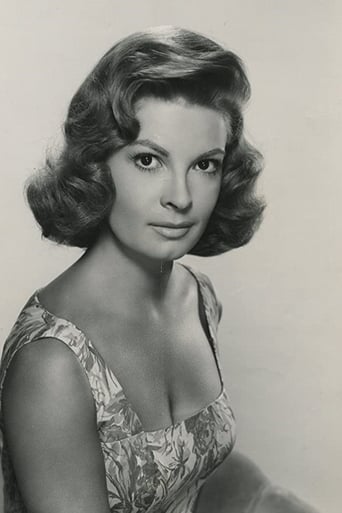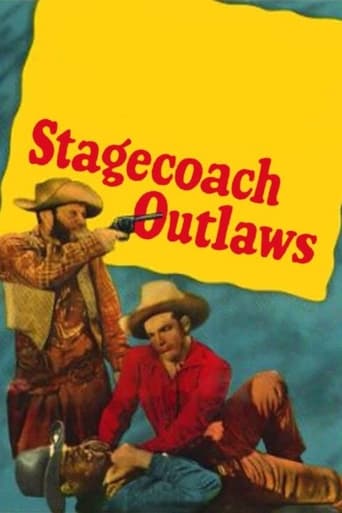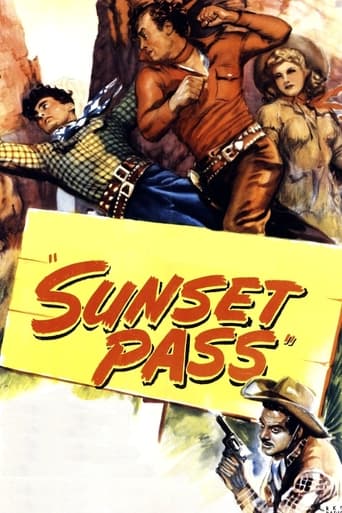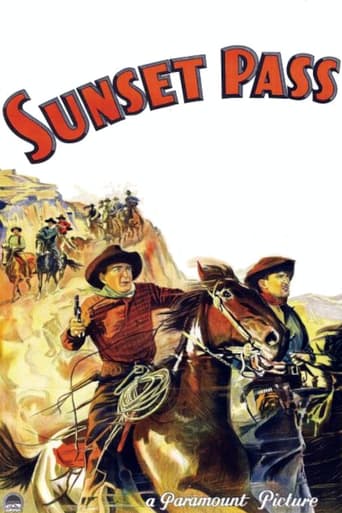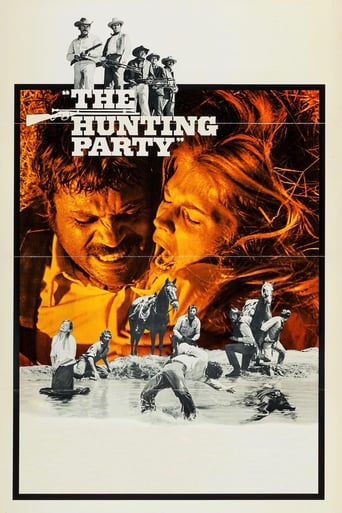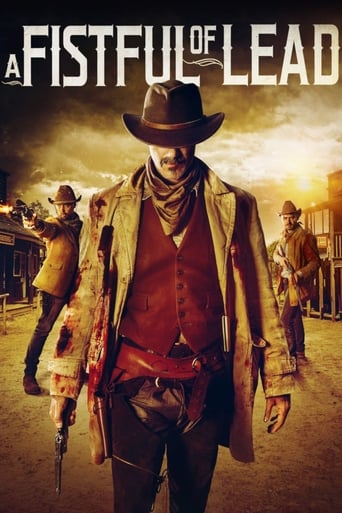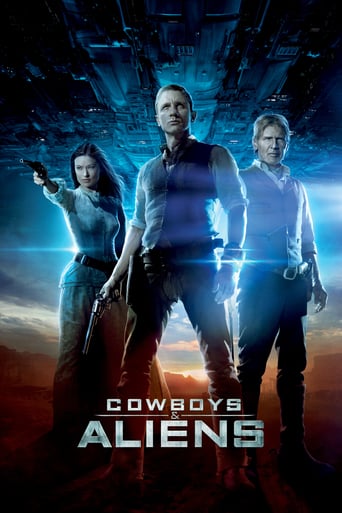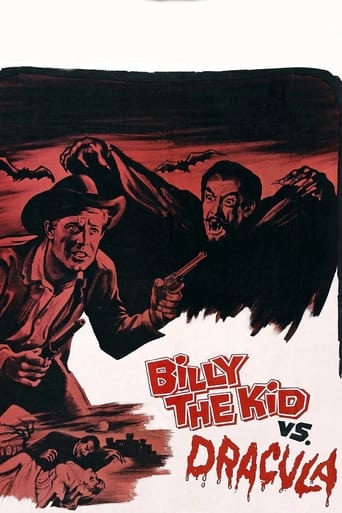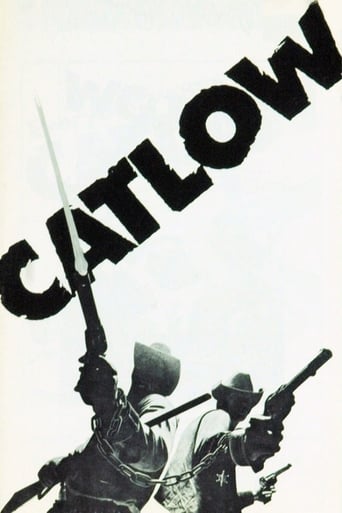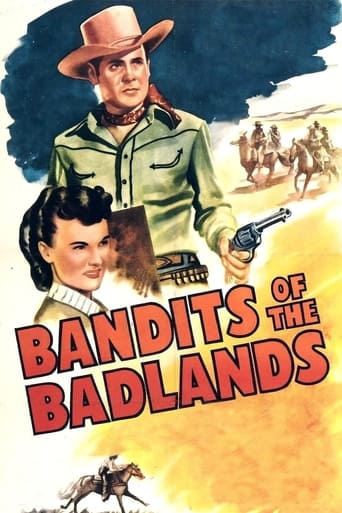The Law and Jake Wade (1958)
Jake Wade breaks Clint Hollister out of jail to pay off an old debt, though it's clear there is some pretty deep hostility between them. They part, and Jake returns to his small-town marshal's job and his fiancée only to find he has been tracked there by Hollister. It seems they were once in a gang together and Jake knows where the proceeds of a bank hold-up are hidden. Hollister and his sidekicks make off into the hills, taking along the trussed-up marshal and his kidnapped bride-to-be to force the lawman to show them where the loot is.
Watch Trailer
Cast


Similar titles
Reviews
Released in 1958, "The Law and Jake Wade" stars Robert Taylor as the title character who was an outlaw after the Civil War, but is now a sheriff out West. A member of his former gang, Clint Hollister (Richard Widmark), won't let him start a new life and forces Jake and his fiancé (Patricia Owens) to lead him and a few other ne'er-do-wells to some buried money in a ghost town in the mountains. Unlike Jake, Clint is bad through and through and the new lawman is convinced he'll kill him after he gets the money.This Western has a lot going for it: a solid cast, particularly Taylor as Wade and Widmark as the arrogant and no-good Clint (both are convincing Westerners); utterly breathtaking Western locations, shot in Alabama Hills , Lone Pine and Death Valley National Park, California; and some fascinating ruminations on the nature of morality, evil, law, friendship and rivalry.As far as law goes, Clint argues that he killed and looted before and after the war, which society naturally considered evil, but he did the same thing during the war where the South viewed him as a faithful citizen. To him there's no difference, but Jake sees the difference in that the state of war may justify certain actions against enemies that aren't justified otherwise. Furthermore, Jake regrets his outlaw days whereas Clint has zero qualms about the evil that he wreaks.Unfortunately, there are some problems on this front that are never answered. For instance, if Jake is now a "good man" and respects law and order (which explains the movie's title) why does he foolishly break Clint out of jail at the beginning of the movie? It's revealed that he's a man of honor who's paying back a debt, but – by doing this – he releases a serious criminal to continue to commit atrocities. He even admits that he's convinced that Clint will eventually murder him, which means he knows he's incorrigible. Furthermore, in breaking Clint free of his death sentence a few guys get shot during the escape, although not killed. Isn't this a ridiculous risk even if Jake's being honorable by repaying a debt? It's not just a risk of innocent people potentially dying, but Jake's face was undisguised for all to see, which could potentially ruin his new life (more on this below). Everything points to nothing good coming from saving Clint from the hangman's rope but, then again, maybe Jake was holding on to the slightest possibility that Clint would see his good fortune and go straight. In other words, he was hoping for redemption for the man. In fact, it was presumably this very thing that turned Jake around.An aspect about the plot that I liked was the friendship AND hostility of Jake and Clint's relationship. I've experienced one significant relationship like this where it's a close friendship, but with flashes of hostility rooted in the stoo-pid rivalry of the other guy, which he can't seem to deal with. Right now we're on negative terms because I dared to confront him about something he was doing that was wrong and he didn't like it. I'm about ready to call him and say (with a Western twang), "This town's not big enough for the both of us." The main reason I'm not giving "The Law and Jake Wade" a higher rating is because of the contrived nature of certain aspects of the story and some obvious plot holes. For instance, at the beginning Jake enters the jailhouse early in the AM and the sole person guarding Clint doesn't even hear that someone entered the facility until Jake sticks a gun to his back. Why sure! Furthermore, as noted above, Jake doesn't seem to be doing a lot to disguise his identity when the town's a mere 60 miles or so from the town where he's the sheriff. Wouldn't law officers in one town be relatively known in other towns in the general region? So Jake's taking an unbelievable risk in openly breaking Clint out of jail without a disguise (a simple scarf hiding his face would've solved this issue). These types of problems in scripts – particularly old Westerns (pre-60s/70s) – insult the intelligence of viewers and loses their respect. There are numerous 50's Westerns that are guilty of these types of eye-rolling contrivances and plot holes.Nevertheless, there's definitely enough good in "The Law and Jake Wade" to give it a thumbs up, especially the two strong leads, their love/hate relationship and the fascinating explorations of good and evil, law and outlawry, friendship and rivalry. Too bad the film's glaring negatives hold it back from greatness. Still, it's one of my personal favorite Westerns. DeForest Kelley (aka Dr. McCoy) appears in a peripheral role as one of Clint's heavies.The film runs 86 minutes.GRADE: B
An awesome rugged Western masterfully directed by John Sturges including good main cast and agreeable secondary actors in which Marshal Taylor tangles with nasty bandit Widmark over a buried loot . It deals with outlaw Clint Hollister (Richard Widmark) getaways from prison with the help of a lawman with a dark past called Jake Wade , because once Clint did the same for him . Jake left Clint just after , but Clint finds him back and forces Jake by kidnapping his girlfriend called Peggy (Patricia Owens) to lead him to a loot Jake buried one year ago when he abandoned Clint . Hollister and his sidekicks (Robert Middleton, DeForest Kelley , Henry Silva) tie Jake and survey to no escape . Then Peggy learns all too quickly about Jake's dark past . When they arrive in the ghost little town where Jake hid the money, they have to fight off a bunch of marauding Indians .This exciting as well as robust Western contains tension-filled , juicy atmosphere , thrills , suspense , gun-play and an impressive final on a dead little town which was one of filmmaker Sturges's best moments . Magnificent western from the John Sturges/Richard Widmark team and their second collaboration , after ¨Backlash¨ and considered one of their best . Colour , music , scenarios , landscapes all marks well in this thrilling story about a compulsive outlaw who contends his old friend as well as his nemesis . It describes a long journey in which there are extreme characters combined with psychological observations and enriched by eventual ambiguity and a tense picture about dishonesty and badness . This particular Western only starred by a few characters contains an interesting screenplay by William Bowers based on the novel by novel Marvin H. Albert . By that time (1958) the picture was considered quite strong , tough , surprisingly violent ; today is deemed a classic film . And seems to be a great influence of wide range such as violence , a hard battle of wits among gunslingers and scenarios . The two stars , Robert Taylor and Richard Widmark , make nice adversaries . They are accompanied by a good support cast such as Robert Middleton , Henry Silva , Burt Douglas , Eddie Firestone and intimate ¨Bones¨ DeForest Kelley of Star Trek . Filmed in Cinemascope in colorful cinematography by Robert Surtees who gets to take from nature the maximum impacts as deserts , valleys , mountains , being wonderfully photographed . Being filmed on location in Alabama Hills , Lone Pine, Death Valley National Park,California, USA . Breathtaking background scenarios , dramatic close-up along with shining illuminations , all of them perfectly mingled with a tale full of violence , tension , intrigue and shoot'em up .This top-drawer Western drama was compellingly produced by William Hawkes and stunningly realized by the master John Sturges , infusing the traditional Western with psychological confusion , including his characteristic use of landscape with wonderful use of Natural Parks which is visually memorable . Sturges established his forte with magnificent Westerns almost always plenty of action , violence , and splendid outdoors . Sturges began his directing career at Columbia Pictures, where from 1946-49 he he worked on "12-day wonders" ("B" pictures shot on a 12-day schedule). From there he moved on to MGM where he filmed more "B" pictures, albeit on a larger budget . He established an independent production company in 1959, releasing through United Artists. From 1960-67 he worked under contract for United Artists. His first major hit was the western Dog Day at Black Rock (1955) , which he shot in just three weeks, wrapping up virtually every scene in a single take . He specialized in robust action pictures, particularly westerns. He excelled at bringing to life tautly written stories about tough characters facing difficult circumstances . Throughout his career he regularly alternated hits with misses . He has also been criticized for his lack of stylistic trademarks , though his best films remain exciting to watch . Sturges was expert on all kind of genres , but especially warlike such as : ¨Great Escape¨, ¨Ice Station Zebra¨ and ¨Eagle has landed¨ and Western such as ¨Last train of Gun Hill¨, ¨Magnificent Seven¨, ¨Backlash¨, ¨Law and Jake Webb¨, ¨Joe Kidd¨ and Chino¨, among others . This high-level and Western will appeal to Robert Taylor and Richard Widmark fans .
"The Law and Jake Wade" is a dark Western with some big name actors. But for the scenery and acting by Richard Widmark, there's not much else going for this movie. The film is based on a novel by the same title that helped launch a successful fiction writing career for Marvin H. Albert. I don't know how well the script follows the book, or how well Albert fleshed out the "reformed" Jake Wade in the book. But the film leaves this as an unsettled, dark matter. A couple other reviews have noted this. I kept looking for the film to explore the conflicts of Jake Wade over his past and present. In the beginning, that held my interest in the film. But as the movie progressed, and we never saw any resolution in the character of Wade, this became a nagging distraction from my enjoyment of the film. I agree with the few others who found fault with the plot and some of the scenes (Indian attacks) as well. But, I'd like to discuss this big hole in the story further. The dark aspect of the film is the character of Jake Wade. Has he reformed, or hasn't he? The question is never resolved in the film, so I was left hanging. So, I disagree with reviews that saw this as a standard Western. Widmark, who plays Clint Hollister, asks the question point blank in the movie. Why did Wade bother to spring him from jail when he had been tried and was due to hang for murder? Does the simple answer suggested by some reviews answer the question? Was it a matter of honor for Wade, or a debt to be repaid as some think? If so, that means that Wade had not changed and did not put law and order first. Wade knows Hollister. They had been together for many years. Wade knows that Hollister plans to kill him. Wade freed Hollister knowing that he would go on robbing and killing. So, the dark side of this film is that there is apparently no conflict in the person of Jake Wade. So, has he really reformed? Does he really believe in law and order? Does he really care about keeping the peace and protecting people? If he does, we don't see it, because any moral struggle over his actions never comes to the fore. Was it absent in the book? Or was it in the book but not explored in the film by the screenwriter, the director and/or the actor? Without exploration of Wade's moral conflict over his actions, we are left with a wooden marshal who has no thoughts about it one way or another. And in that lies the dark side of this film. The movie sets out to have us rooting for Wade as the bad guy turned good. But in reality, his bond to his former life was stronger than any moral sense and change of life for law and order. Now, some reviewers seem to hold Robert Taylor up as a great actor; so I'll end here with some words about Taylor's acting and appeal. As a young person, I too liked the handsome, rough-hewn image of Taylor, the leading man. There's no doubt that he was a draw for me and many other movie buffs to see his movies. But, the last few decades as I've built up a film library for my family, I haven't found a single movie in which I thought Taylor was very good or excellent as an actor. At his best, he is just good or OK. Some of the films have been very good due mostly to the stories and support from others in the cast. Enough said on that – I still have a couple keepers in which Taylor stars. He's wooden in those as well, but the films are quite good. "The Law and Jake Wade" could have been a great film if it had probed the character of Wade more deeply, and given him some conflicting emotions over his moral choices.
See the movie..Don't let yourself be swayed by one or two bad reviews for this under-rated late 50's western with Robert Taylor playing the title character..Jake Wade ..town Marshall..and Richard Widmark as his ex-gang buddy(?) from back in the day..Civil War and post war years..a few have said the score sucked..maybe because of the strike in 1958..I can neither confirm nor deny..if that's the case, it must have been short lived as other films were released the month before(5) and a month later (1) ..big budget movies were released all year with great scores..by this time Robert Taylor was no longer the young handsome face of the 30's and was a veteran actor and a lot like Gary Cooper..played darker,more serious roles late in his career. More gritty..more realistic..the same year he did Saddle The Wind with John Cassavetes..and as gritty as Gregory Peck's The Bravados the same year..1958 and Peck's The Big Country..Cooper also played a town Marshall marrying someone younger in High Noon..he was a star and under played his role here letting Richard Widmark get most of the best lines until the last three minutes of the movie.."I would have handed you your gun" followed by Taylor's response.."you always liked me more than I like you"..good line..great acting..great supporting cast..great scenery filmed on location..but this movie is a sleeper and a keeper..and worthy of some attention..it deserves a look-see..from a good movie year..one of the better performances from that year..

